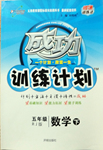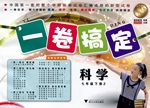题目内容
13.Around the world coral reefs(珊瑚礁) are facing threats(威胁) brought by climate change and great changes in sea temperatures.While ocean warming has been the primary focus for scientists and ocean policy managers,cold events can also whiten corals.A new study by scientists compared damaged to corals exposed to heat as well as cold stress.The results show that cool temperatures can cause more damage in the short term,but heat is more destructive(破坏性的) in the long run.Climate change is widely known to produce warming conditions in the oceans,but extreme cold-water events have become more frequent and serious as well.In 2010,for example,coral reefs around the world faced one of the coldest winters and one of the hottest summers on record.
During a unique experiment,corals under cold temperatures suffered greater damage in just days compared with heat treated corals.Yet the researchers found that corals were eventually able to adjust to the cold conditions,make their health stable and continue to grow.However,over the long term corals subjected to heat suffered more greatly than those in cold,with evidence of severe whitening and growth stoppage,which leads to death.
The coral's ability to adjust to cool temperatures surprised the researchers,who say the study's results show the complexities(复杂性) of monitoring coral health in response to different environmental factors(因素).
"Global warming is associated with increases but also decreases of temperatures,"said Deheyn,one of the researchers."Not much has been known about the comparative effects of temperature decrease on corals.These results are important because they show that corals react differently to temperature differences,which is important for future management of coral reefs in the field of climate change."
72.Which of the following is TRUE according to the passage?B
A.Corals are unable to adjust to temperature changes.
B.Heat and cold damage corals in their own ways.
C.Cold temperature causes greater damage to corals.
D.Hot temperature helps coral reefs to grow quickly.
73.We can learn from the passage thatB.
A.scientists used to pay no attention to the effect of cold events on corals
B.2010witnessed one of the greatest temperature differences on record
C.corals prefer warmer conditions to cold temperatures in the long run
D.global warming has nothing to do with the decrease of temperature
74.According to the research,D.
A.cold events help corals grow more quickly in a short time
B.corals show no response to hot temperatures in the first days
C.corals are whitened mainly because of warm temperatures
D.corals may continue to grow in cold events after a few days
75.Scientists reached the conclusion throughA.
A.scientific study B.news report C.great imagination D.natural conditions.
分析 本文属于说明文阅读,作者通过这篇文章向我们介绍全球的海洋珊瑚礁正在受到气温变化的破坏,极热和极冷以自己的方式破坏着珊瑚礁,而研究证明,珊瑚礁适应冷的温度的能力比热的更强.
解答 72.B 细节理解题:从文章第一段的句子While ocean warming has been the primary focus for scientists and ocean policy managers,cold events can also whiten corals.可知热和冷分别以自己不同的方式破坏着珊瑚礁,故选B.
73.B 细节理解题:从文章第二段的句子In 2010,for example,coral reefs around the world faced on of the coldest winters and one of the hottest summers on record.可知2010年见证了历史记录上最大的气温变化,故选B.
74.D 细节理解题:从文章第三段的句子Yet the researchers found that corals were eventually able to adjust to the cold conditions,make their health stable and continue to grow.可知几天后,珊瑚礁可能在寒冷的情况下继续生长,故选D.
75.A 细节理解题:从文章第三段的句子During a unique experiment,corals under cold temperatures suffered greater damage in just days compared with heat treated corals.可知科学家是通过科学研究得出结论的,故选A.
点评 考查学生的细节理解和推理判断能力.做细节理解题时一定要找到文章中的原句,和题干进行比较,再做出正确选择.在做推理判断题时不要以个人的主观想象代替文章的事实,要根据文章事实进行合乎逻辑的推理判断.

 黄冈小状元口算速算练习册系列答案
黄冈小状元口算速算练习册系列答案 成功训练计划系列答案
成功训练计划系列答案 倍速训练法直通中考考点系列答案
倍速训练法直通中考考点系列答案 一卷搞定系列答案
一卷搞定系列答案 名校作业本系列答案
名校作业本系列答案| A. | flowing; measures | B. | flowing; is measured | ||
| C. | flowed; measures | D. | flowed; is measured |
During his college years,Rogers(41)Ba summer in an Idaho logging camp(伐木场).When the boss had to leave for a few days,he put Rogers in charge.
"(42)Aif the men refuse to follow my orders?"Rogers asked.He thought of Tony,an immigrant worker who (43)Aall day,giving the other men a(44)Dtime.
"Fire them,"the boss said.Then,as if (45)DRogers'mind,he added,"I suppose you think you are going to fire Tony if you get the(46)A.I'd feel (47)Babout that.I have been logging for 40years.Tony is the most(48)Cworker I've ever had.I know he is a troublemaker and that he(49)Deverybody and everything.But he comes in first and leaves last.There has not been an(50)Afor eight years on the hill where he works."
Rogers took over the next day.He went to Tony and spoke to him."Tony,do you know I'm in charge here today?"Tony grunted(嘟囔)."I was going to fire you the first time we tangled(纠缠),(51)DI want you to know I'm not,"he told Tony,(52)Bwhat the boss had said.
When Rogers finished,Tony(53)Bthe spadeful(铲子)of sand he had held and tears streamed(54)Chis face.
That day Tony worked harder than ever before.
Twelve years later Rogers met Tony again who was now the(55)Afor railroad construction for one of the largest logging companies in the West.Rogers asked him how he came to California and happened to have such(56)D.
Tony replied,"If it not be for the one(57)Cyou talk to me back in Idaho,I kill somebody someday.One minute(58)Bmy whole life."
Effective managers know the(59)Aof taking a moment to point out what a worker is doing well.But what a (60)Ca minute of yes can make in any relationship!
| 41.A.wasted | B.spent | C.trained | D.traveled |
| 42.A.What | B.How | C.Why | D.Who |
| 43.A.troubled | B.helped | C.smiled | D.spoke |
| 44.A.easy | B.surprising | C.happy | D.hard |
| 45.A.recognizing | B.having | C.bearing | D.reading |
| 46.A.chance | B.order | C.support | D.evidence |
| 47.A.proud | B.bad | C.ugly | D.well |
| 48.A.quarrelsome | B.elegant | C.reliable | D.silent |
| 49.A.respects | B.protects | C.hurts | D.hates |
| 50.A.accident | B.chance | C.opportunity | D.argument |
| 51.A.and | B.or | C.besides | D.but |
| 52.A.lying | B.adding | C.smiling | D.replying |
| 53.A.threw | B.dropped | C.carried | D.lifted |
| 54.A.through | B.on | C.down | D.in |
| 55.A.boss | B.worker | C.engine-driver | D.immigrant |
| 56.A.railroad | B.companies | C.life | D.success |
| 57.A.word | B.thing | C.minute | D.lesson |
| 58.A.save | B.change | C.color | D.lose |
| 59.A.importance | B.method | C.result | D.influence |
| 60.A.choice | B.decision | C.difference | D.conclusion |
| A. | which | B. | in what | C. | in which | D. | where |